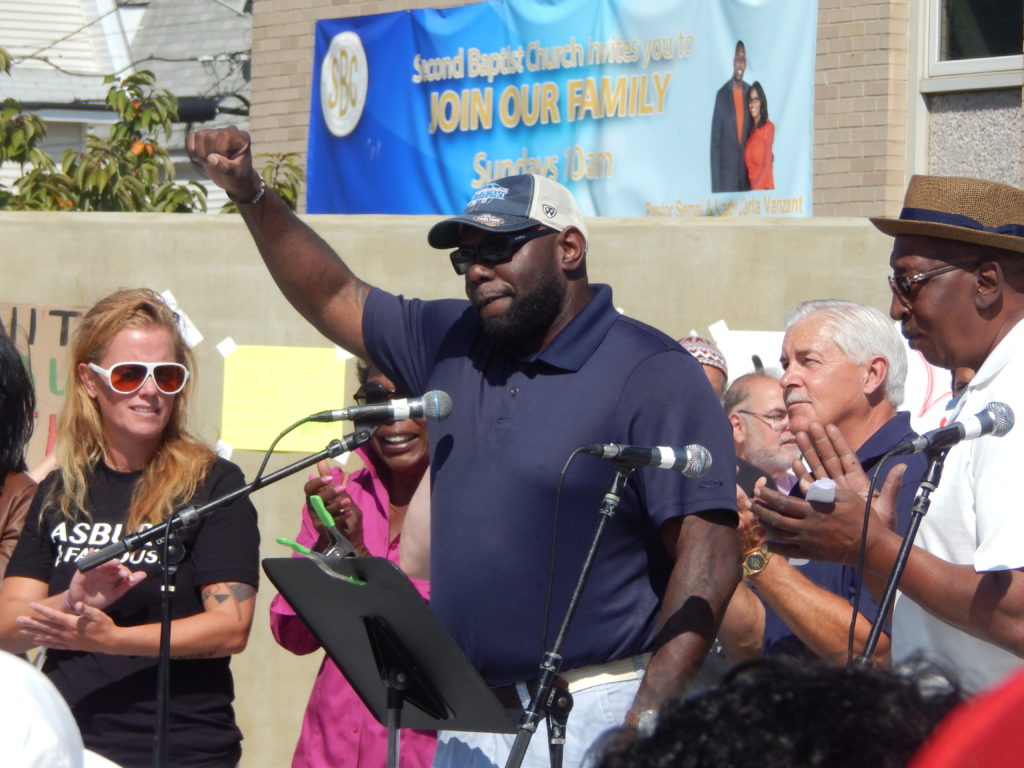Major Political Disclosure Bill Hopefully is Poised for Passage
Listen to audio version of this article

On January 17, 2019, the Senate Budget and Appropriations Committee unanimously approved Senate Bill 1500, readying it for a floor vote in the State Senate.
The bipartisan, 12-0 vote to move the bill, sponsored by State Senator Troy Singleton (D-7th district), represents an important step toward enhancing transparency over elections and lobbying in New Jersey.
Let’s hope the momentum continues.
In a prescient move, the Senator first introduced the bill when he was an Assemblyman in 2016. The bill requires registration and disclosure by independent, outside groups, whose activities range from elections to issue advocacy, or grassroots lobbying.
While requiring disclosure by nonprofit 501(c)4s, super political action committees and other similar groups, the bill included an important amendment by raising the donor disclosure threshold from $300 to $10,000.
Lifting this threshold to $10,000 is critical because it should avoid capturing most donations made solely as membership dues to various organizations while ensuring that voters know major sources of money behind these groups. It prevents them from totally operating in the dark.
In terms of elections, Senator Singleton’s bill is singularly important because of the increasing influence over New Jersey’s elections by independent groups.
ELEC foresaw this trend in April 2010, when the bipartisan commission unanimously endorsed donor disclosure by independent groups participating in New Jersey elections. The vote was taken in the wake of the landmark Citizens United v. FEC ruling three months earlier by the US Supreme Court, which enabled corporations and unions to independently spend unlimited funds on elections.
The recommendation was made even though it was hard to fathom nearly a decade ago just how dominant the independent spenders would become.
During New Jersey Congressional elections last year, a record $49 million was spent by outside groups. In 2017, during the gubernatorial and legislative campaigns, over $47 million was spent by these groups.
In comparison, state and county parties last year only spent a combined $8.1 million. These same groups spent considerably less than outside groups in 2017 as well, spending together $27 million, or $20 million less than independent groups.
The most dramatic example of the stunning new clout of independent groups came during the 3rd legislative district campaign in 2017.
A total $19 million, an all-time record for the entire United States, was spent in the single legislative district. Out of this amount, close to $15 million was spent by outside groups compared with a little more than $4 million by the candidates themselves.
At this rate, it won’t be long until all candidates are outspent by these groups. When that happens, candidate messaging will be usurped by independent spenders.
So, passage of the pending disclosure legislation, which would also provide the public with more information about who is donating to groups attempting to influence public policy through grassroots lobbying, is vitally important.
A companion bill, A-1524, whose prime sponsor is Assemblyman Andrew Zwicker (D-16th district) has been awaiting action in the Assembly. This bill was introduced in early 2018.
While the main focus of the Senate and Assembly bills is to require disclosure by 501c4, 527 political organization and other independent groups, the legislation is important in another way as well.
It represents a first step toward strengthening political parties and candidates in relation to independent groups by raising limits on contributions to parties and candidates and ending an archaic rule that bans county parties from giving to each other during the primary election.
These provisions in the bill would help to offset the growing influence of outside groups by beginning the process of redirecting the flow of money away from these groups toward more accountable parties and candidates.
State Senator Singleton and Assemblyman Zwicker deserve credit for their foresight and courage in pushing for this reform legislation.
It also should be noted that both Republican and Democratic members unanimously supported the bill during the Senate committee vote.
Another important development is that Governor Phil Murphy recently said he believes independent groups should disclose their donors. “I stand for and I’m supporting laws that make sure that happens…I look forward to working with the Legislature to achieve that,’’ he said January 9, 2019.
Though the board list has yet to be released, the next Senate voting session is set for January 31. The Assembly meets the same day but, as of yet, the legislation has not been listed in the lower house, either, for a committee hearing or floor vote.
Hopefully this good government measure will be taken up and the momentum toward passage will be carried forward.
Jeff Brindle is the Executive Director of the New Jersey Election Law Enforcement Commission.
The opinions presented here are his own and not necessarily those of the Commission.










Bullshit. While requiring disclosure by super PACs is great, raising the disclosure threshold from $300 to $10,000 prices out all the extortion among local government employees from discovery, makes it harder to emulate successful insurgencies and the bill also reinvents ‘wheeling’ so corrupt political bosses who rule the state stay in business.
This legislation is fine as long as democracy is expendable. We need to outlaw bribery and fund campaigns with public money so there is no middle man between voters and the people they elect.
This could be called the Democracy in Auction Act because it keeps government for sale instead of restoring power to the people .